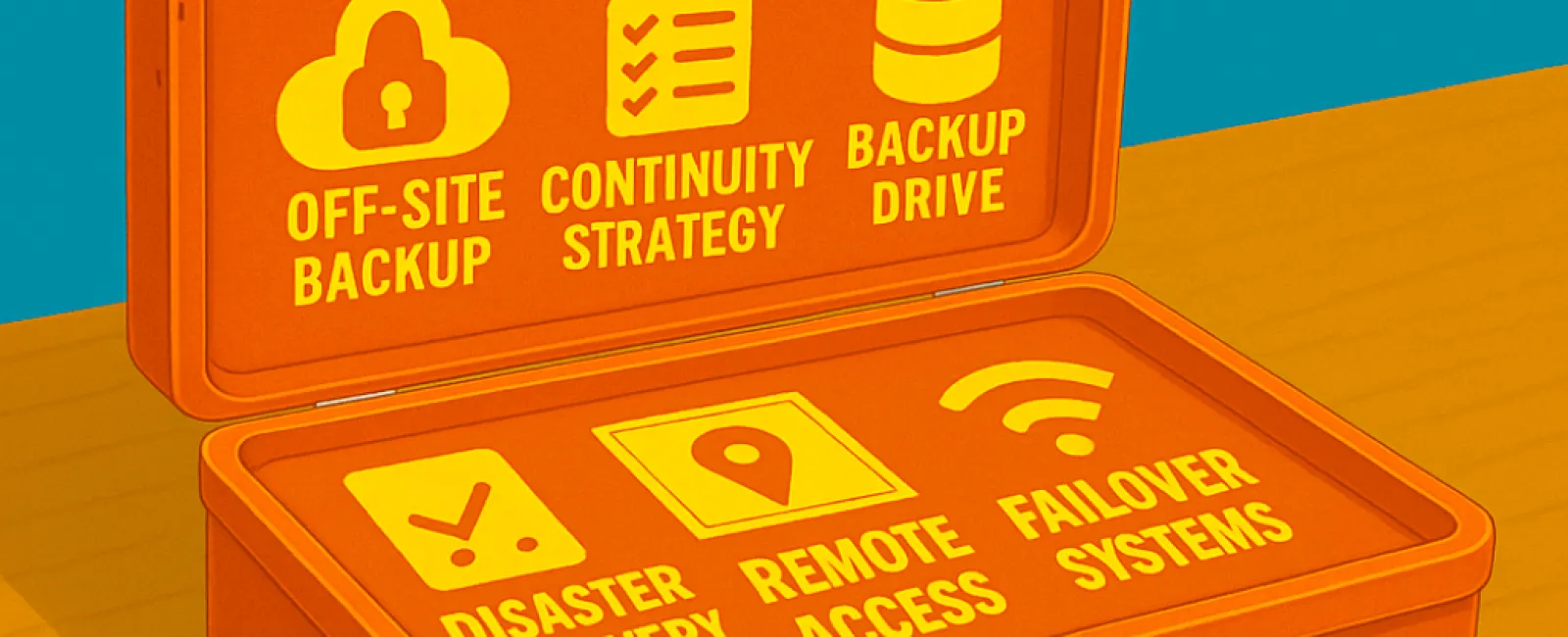July 28, 2025
Unexpected power failures, cyberattacks, equipment malfunctions, and natural catastrophes can strike without notice, leaving small businesses vulnerable to severe consequences. While many believe simply having backups is sufficient, the reality is that recovering a file does not equate to maintaining operations. If your systems become inaccessible, remote work stalls, and communication with your team and clients falters, even brief interruptions can lead to prolonged setbacks. A dependable IT partner equips you not only with backups but also a comprehensive strategy to ensure your business keeps functioning no matter the challenge.
Why Backups Alone Won't Protect Your Business - Continuity Planning is Essential
To be clear, backups are critical—but they represent just one component. What truly safeguards your operations is a robust business continuity plan, a forward-thinking approach that guarantees uninterrupted performance during and after disruptions.
When system failures occur, files may be unreachable or your workplace inaccessible—yet relying solely on local backup files offers little relief. Without a swift, well-designed plan to restore functionality, your business faces potential financial losses, damage to reputation, and regulatory non-compliance.
Distinguishing Between Backups and Business Continuity
Many fall into the trap of confusing these concepts:
●
Backups secure your data for restoration.
●
Continuity ensures your business remains operational under any circumstances.
An effective continuity plan addresses critical questions such as:
●
What is the recovery time?
●
Where will employees work if the office is compromised?
●
Which systems are absolutely essential?
●
Who is responsible for initiating the recovery?
Key elements include:
●
Off-site, encrypted, and tamper-proof backups
●
Prioritized recovery objectives (RTO/RPO)
●
Preparedness for remote work
●
Redundant infrastructure and automatic failovers
●
Routine disaster recovery drills
If your IT provider cannot confidently guide you through these crucial points, you are not truly protected—just fortunate so far.
Is This Something That Could Really Affect You?
This isn't fear-mongering—these are genuine threats with significant impacts. Recent examples include:
●
Hurricanes in Florida forced hundreds of businesses to halt operations completely due to lack of cloud accessibility.
●
Flooding in North Carolina destroyed on-premise servers, wiping out months of critical data.
●
California wildfires razed office buildings without any off-site backup strategies.
●
Numerous small businesses struck by ransomware discovered their backups were corrupted or untested.
Disasters don't discriminate by company size; businesses like yours face these risks daily.
Essential Questions Every Business Should Ask Now
If disaster strikes tomorrow, can your business keep operating?
Make sure to ask your IT provider:
●
How quickly can we recover from a ransomware attack?
●
Are backups regularly tested and comprehensive?
●
What is the contingency if natural disasters render our office unusable?
●
Is our continuity strategy compliant with applicable industry regulations?
●
Can client services continue seamlessly if employees must work remotely?
If you can't confidently answer these questions, your business may already be at risk.
Disasters Are Inevitable. Downtime Doesn't Have To Be.
You can't prevent every outage or cyberattack, but you can choose how your business responds.
The right IT partner doesn't just help you recover—they ensure your operations never miss a beat.
Curious about your current resilience?
Click Here or call us at 888-820-2992 to schedule your FREE 15-Minute Discovery Call and let's protect your business from downtime before disaster strikes.




